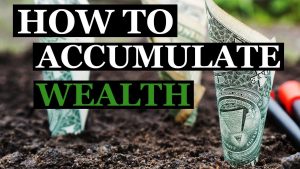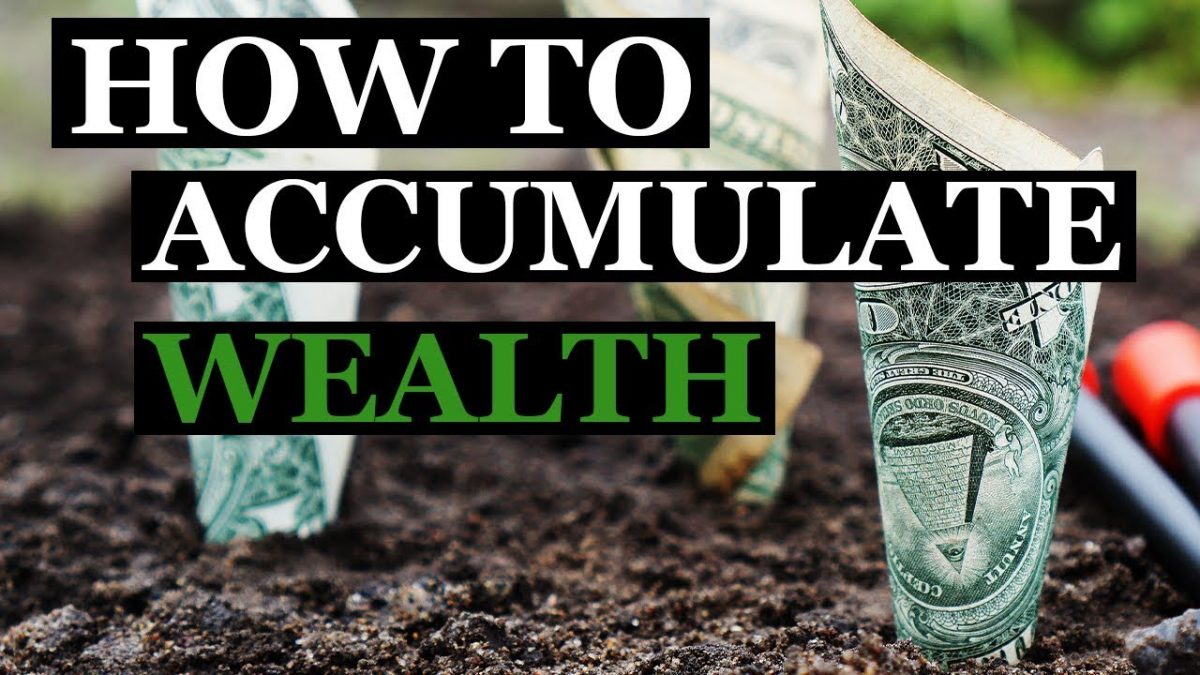Is It Sinful To Accumulate Wealth?
Is It Sinful To Accumulate Wealth?
 Last month in my article, It’s Time To Fend For Yourself, I wrote about how our country was built upon two religions — a secular religion that was based on the beliefs and principles of individualism, self-reliance, freedom, hard work, patriotism, and independence, and a biblical religion that was based on the beliefs and principles of the 10 Commandments, the God of the Old Testament, and the teachings of the Son of God.
Last month in my article, It’s Time To Fend For Yourself, I wrote about how our country was built upon two religions — a secular religion that was based on the beliefs and principles of individualism, self-reliance, freedom, hard work, patriotism, and independence, and a biblical religion that was based on the beliefs and principles of the 10 Commandments, the God of the Old Testament, and the teachings of the Son of God.
I then outlined how many of today’s Americans have abandoned those beliefs and principles in exchange for a promise of security from their government. Many of those same Americans have also abandoned the values and morals of previous generations in exchange for the “freedom” to engage in whatever manner of perverted behavior they feel is appropriate.
At the end of my article, I recommended that because of the breakdown of our society and the chaos that exists in our institutions and government, we need to prepare to fend for ourselves and our families, with no expectation that we will receive assistance from our government. One of my recommendations was to set aside enough cash and food to survive on for at least six months. This recommendation was also based on what had happened after a minority of Americans panicked because of the COVID-19 pandemic and then cleared the store shelves of household products that we all use on a daily basis.
In response to my article, I received the following comment on Adoration.com from a devout Catholic who sometimes has questions about what I have written:
My question is, am I truly putting my trust in God if I have a six-month stash of food? I did attempt to build up my supplies, but I feel guilty, as if I’m not trusting the Lord.
This is an excellent question that needs to be answered. Over the years, I have wrestled with a similar question, Am I truly putting my trust in God if I accumulate wealth?
To my knowledge, the topic of accumulating wealth has never been adequately addressed by the Catholic Church or any of its members. It didn’t previously need to be addressed because until 70 or so years ago, no country had ever achieved the prosperity and abundance that has been experienced by the United States and the countries that have followed its example.
For more than 1,900 years after the birth of Jesus Christ, not even kings and queens could imagine the luxuries that we have become accustomed to today, most of which we consider to be necessities. Before the 20th century, the richest people on Earth — kings and queens — did not have the ability to buy the conveniences and luxuries that you and I have at our disposal every day. If people who lived before 1950 were to consider the possessions and luxuries that you and I have at our disposal, they would all agree that from an economic standpoint, you and I are “rich.”
For most devout Catholics, there are certain behaviors that they have been taught to believe are gravely sinful. Because of their beliefs, there are some words they recoil at, such as the word “rich” and “accumulate.” They believe that if they accumulate wealth, they are doing so because they want to become rich. And they believe that if they become rich, they will be denied entry into the Kingdom of Heaven and will suffer in Hell for all eternity.
When Jesus said that it was easier for a camel to pass through the eye of a needle than for a rich man to enter the Kingdom of God, was He implying that none of today’s Americans (who are richer than more than 95 percent of the people who lived before the 20th century) will be able to get into Heaven?
From a financial and lifestyle point of view, the American people live better than 95 percent of the people who existed from the beginning of time until the 20th century.
Consider this: Whatever your definition of the word “rich” is, it’s going to be different from the definition given by every other person who is asked. The reason for this is that your definition is going to be based on your own personal beliefs about money.
Where did those beliefs come from?
Most of our foundational beliefs about money were formed and constructed automatically and unconsciously because of what we were exposed to while you were growing up.
While the Catholic Church and other mainstream religions provide specific guidance about God, personal behavior, marriage, sex, raising children, and how others should be treated, other than the principle of tithing, there is no reservoir of knowledge, experience, or sound guidance available concerning the acquisition and accumulation of money.
In other words, there is a glaring lack of guidance within the church about what behavior is appropriate when it comes to the accumulation of money. That lack of guidance also applies to the accumulation of food and other necessities for your family.
I’m going to continue this discussion next week and give you a rational (and biblical) justification for the accumulation of a specific level of wealth and food for your family.





1 Comment
Thanks for addressing that question! I look forward to reading the article… and ready to ask more questions! ha.